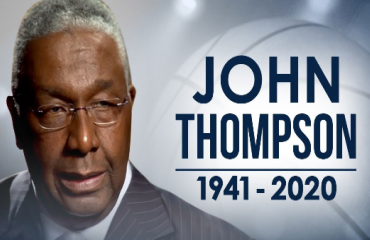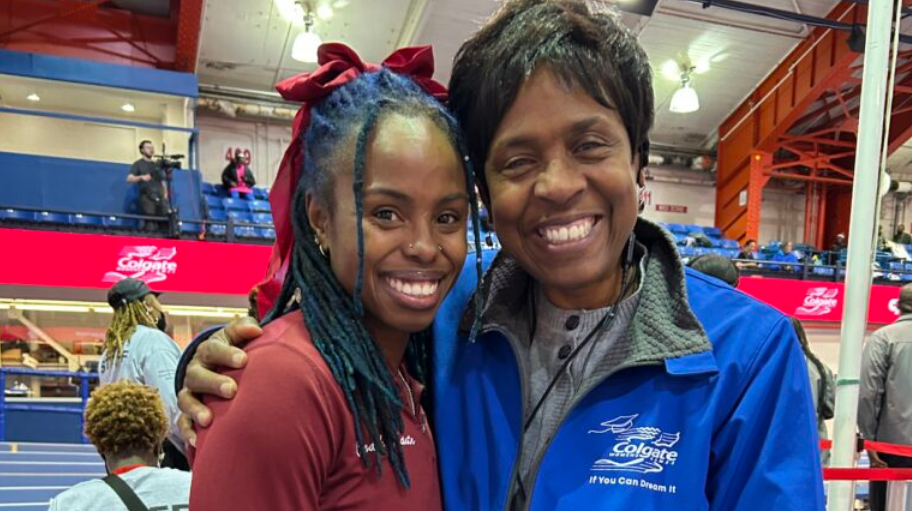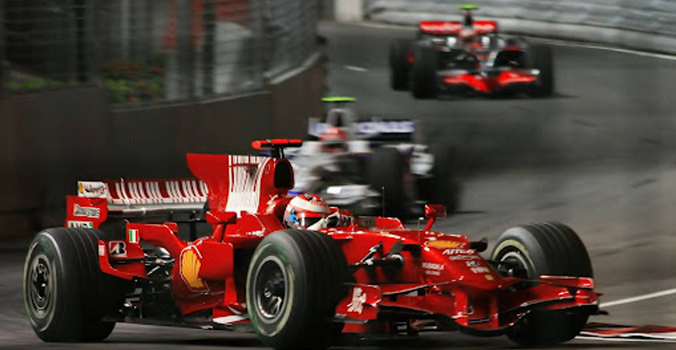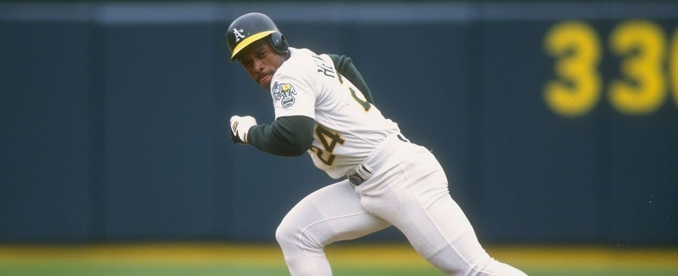[John Thompson Jr.]
Patrick Ewing: “Georgetown University, the sport of basketball and the world has lost someone who I consider to be a father figure, confidant and role model. He has done so much to impact my life and the people he has coached and mentored along the way.”
Photo: YouTube
The legendary John Thompson, Jr., who changed Georgetown basketball forever when as head coach he led the Hoyas to win the NCAA Men’s Basketball Championship in 1984, died Sunday at the age of 78.
Well known for his civil rights activism and his never-flagging support of players, the coach known as “Big John” coached his team members to value both the sport and academics, achieving an impressive 97% graduation rate.
Hired in 1972 as the university’s first Black head basketball coach, he began with a team that had won only a handful of games the year before and went on to win hundreds of games for Georgetown.
‘Father Figure’
He coached future basketball Hall of Fame members such as Dikembe Mutombo (C’91), current head basketball coach Patrick Ewing (C’85), Alonzo Mourning (C’92) and Allen Iverson, and has had an ongoing role with Georgetown since he retired in 1999.
“Georgetown University, the sport of basketball and the world has lost someone who I consider to be a father figure, confidant and role model,” Ewing said. “He has done so much to impact my life and the people he has coached and mentored along the way. However, his reach went well beyond just those who he knew personally, he changed the world and helped shape the way we see it.”
“He was a great coach but an even better person and his legacy is everlasting,” he added. “My condolences and prayers go out to his family.”
Speaking Out Against Racism
The 6’10” coach often fought racism directed against himself and his players.
When NCAA’s Proposition 42 eliminated educational funds for underprivileged youths, Thompson spoke out and took action, bringing the issue to national attention in 1989. The proposition was subsequently dropped.
“While he broke barriers on the court, his legacy is the mark he made on our society as he fought each and every day for the rights of all people regardless of their race or where they came from,” said Lee Reed, Georgetown’s director of athletics. “He was a coach, mentor, activist and friend and his death leaves a gaping hole within the basketball community and, in fact, our nation.”
‘Founding Father’
Ushering in a new era of college basketball, Thompson’s Hoyas were one of the original teams of the newly-formed Big East Conference in 1979. During his time as head coach, Georgetown captured six Big East Tournament titles, seven regular-season titles and a Hoya was named the Big East Player of the Year six times.
On three occasions, the conference named him Coach of the Year.
“Few individuals have been as closely aligned with the Big East Conference as John Thompson, Jr.,” read a statement from the conference. “As a Providence College star, the basketball patriarch at Georgetown University, and one of the conference’s ‘founding fathers’ in 1979, John can be directly credited with establishing the Big East’s national profile and propelling us to college basketball’s top tier.”
“But John’s influence and impact stretched far beyond the sports world and his Hall of Fame career,” the statement continued. “His dedication to the game of basketball was eclipsed by his unabashed determination to challenge norms and call out social injustices, and we are deeply saddened that the quest for racial equity has lost one of its most powerful advocates. John was a pioneer, a thought leader, a mentor and a source of guidance and inspiration to countless players, coaches, officials and administrators, and his contributions to our sport and our society will remain deeply felt for years to come.”
Profound Impact
Thompson also had success on a global scale as head coach of the U.S. Olympic Basketball Team, which won a bronze medal in 1988, and was part of two gold-medal efforts, first in 1976 as an assistant coach and again in 1984 as a member of the selection committee for the team.
While his success from the 1970s through the 1990s was unparalleled, his legacy reached well into the 21st century, supporting Georgetown and the surrounding community and the nation in a wide variety of ways.
When the 144,000-square-foot John R. Thompson Jr. Intercollegiate Athletics Center at Georgetown was dedicated in 2017, President John J. DeGioia recognized Thompson “for the profound impact he has had – here, in our community, on the game of basketball and to larger questions of racial justice, equity, equality and opportunity in our nation.”
A bronze statue of Thompson dominates the center’s lobby, along with several Thompson quotes, including “When I’m gone, if I can’t go to Heaven, take me back to Georgetown.”
The former head basketball coach established The John Thompson Charitable Foundation in 2000 to help improve the quality of life for underserved children within the District of Columbia and other communities.
The foundation awards grants to organizations that enhance children’s lives, provide for continuing education, or support rehabilitation.
Thompson was a consultant, spokesman and board member to Nike, along with serving as coach emeritus and presidential consultant for urban affairs at Georgetown. The University awarded him for his lasting commitment to the Hilltop community with its two highest honors: the President’s Award and the Patrick Healy Award.
Legacy of a Dream
In 2003, Georgetown created the John Thompson Jr. Legacy of a Dream Award to honor emerging local leaders who reinforce the university’s commitment to engagement within Washington, DC and work to solve key issues that are responsible for shaping the city and the people who live in it.
For the past 17 years, the award has been granted to civil rights icons, children’s rights advocates and other humanitarians.
After retiring from Georgetown, he pursued a variety of broadcasting efforts, including hosting The John Thompson Show on ESPN 980 until February 2012, and continued to attend Georgetown basketball games and participate in press conferences, including the one in which his son John Thompson III was named head basketball coach in 2004.
‘A Better University’
“Coach John R. Thompson Jr. had a profound impact on our university,” DeGioia said. “Forty-eight years ago, he joined the Georgetown community and with his distinctive style, commitment to excellence, and clear sense of purpose, transformed Georgetown Basketball.”
“We are a better university because of John’s leadership – he challenged us to live up to our values and enabled all of us to see new possibilities, for ourselves, and for the impact we could have on the world,” he added. “John will be remembered for many things – his historic achievements, the lives he shaped, his advocacy for social and racial justice – but perhaps most of all, for the authenticity through which he lived his life.”
‘Historic Shepherd’
Thompson is survived by two sons and a daughter, former Georgetown head basketball coach John Thompson III, Ronny Thompson and Tiffany Thompson. “Our father was an inspiration to many and devoted his life to developing young people not simply on, but most importantly, off the basketball court,” the family said in a statement. “He is revered as a historic shepherd of the sport, dedicated to the welfare of his community above all else.”
“However, for us, his greatest legacy remains as a father, grandfather, uncle, and friend,” the statement continued. “More than a coach, he was our foundation. More than a legend, he was the voice in our ear every day. We will miss him but are grounded in the assurance that we carry his faith and determination in us. We will cherish forever his strength, courage, wisdom and boldness, as well as his unfailing love.”
‘My Mentor’
After learning about his death this morning, his former players rushed to pay tribute to him.
“Our legendary Georgetown coach, John Thompson has passed away,” Mutombo wrote on Instagram with a photo of himself and Thompson. “He was my mentor, great teacher, hero and a father figure to so many us who got the chance to play for him. Under coach Thompson, I learned a lot about the game of basketball but most importantly, I learned how to be a man in society.”
Mutombo received an honorary doctorate from Georgetown University in 2010 for his humanitarian work in America and for his fellow Congolese. In 2012, his Mutombo Foundation partnered with the university to begin a new initiative aimed at providing care for visually impaired children from low-income families in the Washington, DC region.
Fostering Support
In 1972, Frank Rienzo, who passed away in 2018, told The Washington Post that he didn’t “expect John Thompson to work a miracle.”
Though it later appeared that he had worked a miracle, it was actually a concentrated effort to turn the team around and win hundreds of games while mentoring young men to value both their education and sports.
“It hasn’t been John Thompson standing out there alone,” the legendary coach told Georgetown Magazine in 1997. “In order for me to be me, I had to get support from a hell of a lot of people: from the custodian who agreed to spend a couple of extra hours at the gym waiting for us to finish practice, to the faculty who understood when a player had to miss a class, to the deans listening for one thing or another. From the lowest to the highest, we have had support from a lot of people.”
The Deflated Basketball
Thompson, who had been a basketball star at Providence College in Rhode Island, and was inducted into the Naismith Memorial Basketball Hall of Fame in 1999, kept a deflated basketball in his office to help his players realize that at some point, they would need to do something else besides play ball.
“Coach Thompson taught me a great deal and broadened my horizons,” former basketball player Fred Brown (C’84) told Georgetown Magazine in 1997. “I still remember him spending whole practices just discussing things with us. It was a great classroom, and one of the most important things he taught me involved a perspective which goes beyond the immediate.”
Brown, who went on to attend Georgetown Law, is now CEO of Process H.O.P.E. (Help Overcome Poverty through Education) Inc., a nonprofit community-based organization that helps children in the Washington, DC metro region. From George University News







